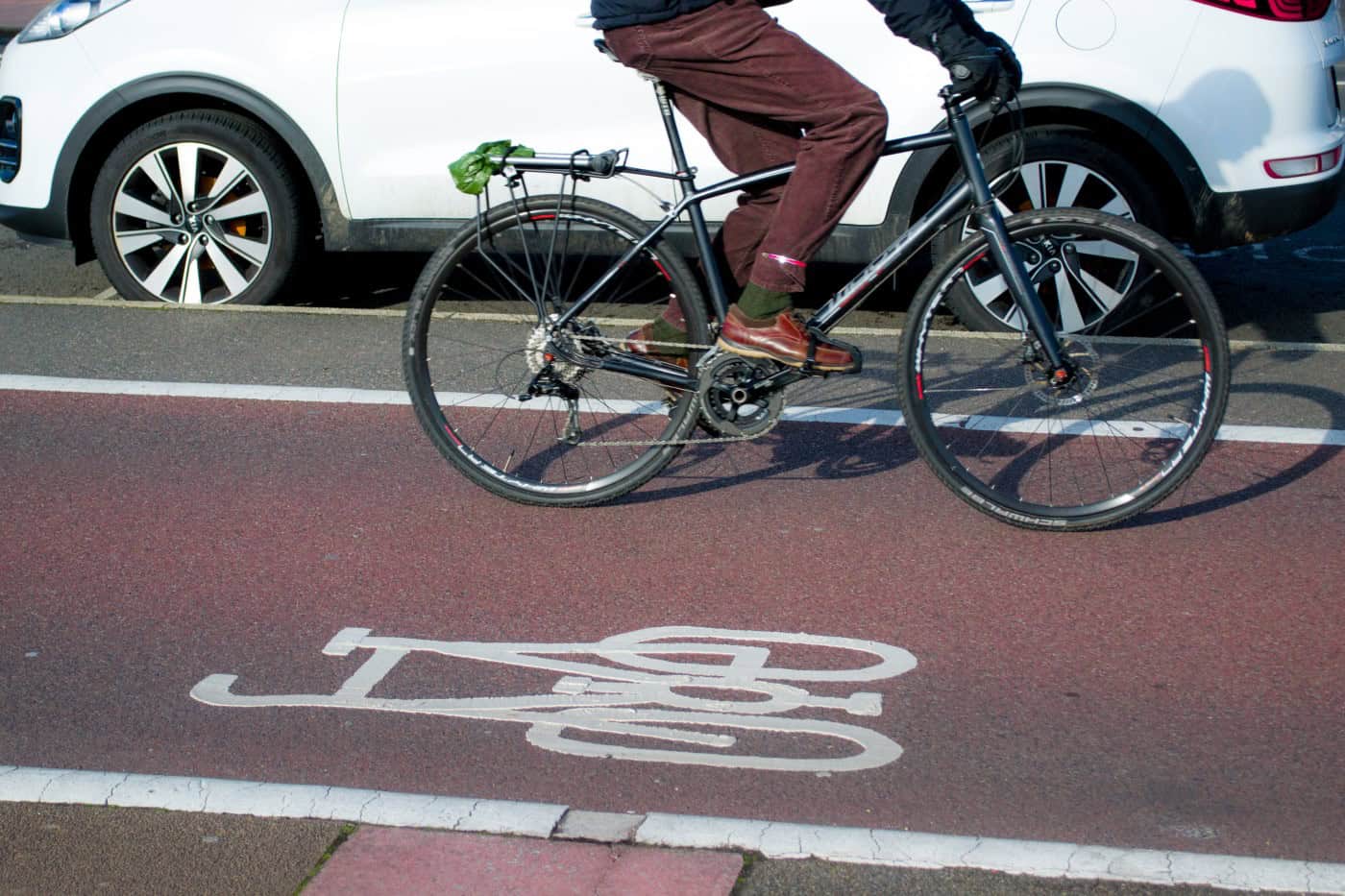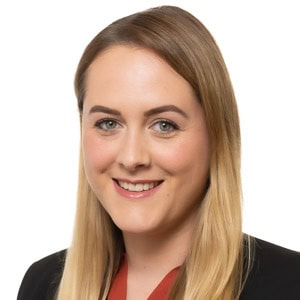
Cyclists – know your rights
It is important that cyclists act in the same way as any other road user when involved in a collision and they deserve the same support.
From a financial point of view, cyclists need to get the driver’s details if they don’t want to be left out-of-pocket. A motorist wouldn’t think twice about claiming back costs if someone rear-ended them in a car, yet it is so easy for a cyclist to do just that if they get knocked off their bike.
Example case:
In one of our client’s cases, the victim cycled off after a collision without taking the driver’s details only to find a few hundred yards down the road that they had fractured their collar bone.
It is vital that cyclists involved in a collision get the registration number of the offending car in order to trace the driver. They should also contact the police if they suspect they have been injured or if the driver refuses to provide their details.
Before you go out on your bike always:
- Save your local work/home police station number and save the non-emergency police number 101 in your phone.
- Know your route, so if you have to call your own ambulance or police you can tell them where you are.
- Program someone into your phone as your “ICE” person (in case of emergency). Should you be unconscious, the emergency services should look in your phone for a person to contact and are advised to look for “ICE” (obviously this won’t work if you have a passcode).
What to do if you’re involved in a collision:
- Move to a safe position.
- Call the police and an ambulance:
a. if you are injured;
b. if you think you may be in shock; or
c. if you think the other party involved is giving you false contact details.
- When the police arrive, co-operate. Stay calm and make sure you give them your side of the story. Take down the name of the officer and ask for the police case reference number. This officer is responsible for investigating your case so it is a good idea to keep them on your side.
- Even if you have a very minor injury, go to hospital or your GP as soon as possible. Tell the doctor they should take detailed notes.
- Take pictures of your injuries at their worst to show their full extent.
- Get the contact details of any witnesses to the incident – the more the better. Do not leave this to the police. Do not hand your only copy of witness details over to the police, but do give them a copy of the witness details. The courts rely heavily on witness statements.
- Beware of accepting money from the other person in the collision as that may be seen as you agreeing to settle your case.
- If you are badly injured, do not be scared to ask for help from bystanders with the above (i.e. getting witness info, registrations details, taking photos, etc). You may be surprised at how helpful others are willing to be if asked.
Helmet Cameras
- If you have a helmet cam, you have a record of events from your perspective which could prove vital. If the police attended the scene of the collision and are carrying out an investigation, provide a copy of the footage to the police, as this could persuade them to take further action against the driver and charge them with a criminal offence. Also, if you decide to make a civil claim for compensation, the footage could be important in proving whether the driver is liable for the collision.
CCTV (Closed-Circuit Television)
This deserves a special mention, as it is vital to obtain CCTV as soon as possible. Do ask the police to try and obtain the CCTV footage, but do not rely on them solely to do this, it is best to always request the CCTV yourself.
Public CCTV – contact the CCTV department of the council for where the incident occurred and ask them to preserve any footage they may have. Do not delay as public CCTV is often saved with a continual degradation system, i.e. every day that goes by means the quality of the footage gets degraded. Once you have asked the council to preserve the footage, you can then request a copy. Most councils have a form for you to complete and there is often a fee which needs to be sent with the application. You are always entitled to obtain a copy of any CCTV footage, which has captured your image.
Many TFL cameras are used to capture and monitor images in real time. The images may also be recorded so it is worth asking TFL if they have recorded any footage.
Private CCTV – this data may be deleted at any point, so you may not have much time to get a copy of it and neither do the police. You should contact the business immediately to preserve the footage.
If you have been involved in a collision with a Motor Vehicle:
- Make sure you get the driver’s vehicle registration – this is usually enough to trace the driver.
- If possible, take the driver’s name, address, registration and insurance details.
- Do not get into a discussion about whose fault the collision was.
- Take photographs of the vehicles and its position in the road, along with any damage to your bike.
Incidents with pedestrians or other cyclists
If you are in a collision with a pedestrian or other cyclist, you should still take their name and address, get witness details, and contact the police and/or hospital if you are injured.
However, it can be very difficult to recover damages against pedestrians or cyclists if they cause an accident. This is because cyclists and pedestrians are often not insured for this type of collision. If there is no insurer, you can pursue someone for damages personally, although this would only be worthwhile if they had sufficient money to cover both the compensation and legal costs.
If you would like to be insured for this eventuality (i.e. if you injure another cyclist or pedestrian) it is possible to get insurance for this. Cycling organisations such as British Cycling offer cyclists insurance for a variety of different situations
If the person causing the collision is acting in the course of their employment, you may be able to take action against their employers.
Accident caused by a defect in the road
If you are in an accident caused by a pothole or other defect in the road, it is important to take photographs of the defect as it looked at the time of the accident. Put an item in the shot (a shoe or notebook, etc) that shows the size and depth of the pothole. These photos are just in case it gets repaired the next day.
You still must go back to the scene as soon as possible to properly record the size of the defect. Retake the photographs with a tape measure so you can accurately show how deep and wide it is.
Hit and Run incidents
If the driver does not stop at the scene of the incident, you may still be able to get compensation through the Motor Insurance Bureau (MIB). All motor insurance policies contribute to this fund which covers hit and run accidents and also collisions caused by uninsured drivers.
There are strict time limits for these claims, including having to report the collision to the Police within 5 days if you want to claim for damage to personal property. The time limits can be found here, along with details on how to apply for compensation:
https://www.mib.org.uk/making-a-claim/
After a collision
Police
If there is another road user at fault for the incident, it is important to involve the police and push for a prosecution if you can. It is easy to get disheartened and give up when the police are unhelpful or inactive in getting drivers convicted for offences against cyclists. Injured cyclists tend not to be treated as priorities by the police and by the public in general. By pushing for the highest punishments, we can help change the motor-centric attitude towards cyclists and raise awareness of the real frequency of these crimes.
When reporting the incident, it is useful to have a basic understanding of the difference between ‘criminal’ and ‘civil’ law, explained below.
Criminal -v- Civil law
Criminal law is where the state punishes someone for breaking the law. It is dealt with by the police and the Crown Prosecution Service (CPS) and cases are heard in the Magistrate’s Court, or the Crown Court if it is more serious.
Civil law (in this context) is where the cyclist sues for a wrong committed against them by another road user. You can get compensation for your financial losses, including damage to your bike, and for the injuries that you have suffered. The defendants will also be liable to pay your legal costs.
Criminal Law
If the police attended the scene of the incident, they will conduct an investigation as to whether either party has committed an offence. If so, the police (or CPS in more serious incidents) decide whether there is enough evidence to charge the culprit with an offence.
The decision to prosecute a driver is solely the decision of the police and/or the CPS. That decision based on whether they believe there is enough evidence to obtain a conviction. It is not the victim’s decision. Often the police will not have sufficient evidence and therefore take no further action. If you feel that the police have failed to properly investigate the collision, you should make a complaint to the Independent Office for Police Conduct (IOPC).
If the decision is made to prosecute, the CPS do not represent the victim and they do not have to act in the victim’s best interest.
If the police and CPS decide not to prosecute, and you feel strongly about prosecuting the driver, it is possible for you to bring a private prosecution. This can be a gruelling and lengthy process. If possible, have a ‘without obligation’ meeting with a criminal lawyer, which may give you an idea of how the process will work.
If the police decide to prosecute the driver, the insurer will often wait until the end of the criminal case before admitting their driver was at fault. This is to avoid prejudicing the motorist’s ability to defend the criminal proceedings. This may delay the progress of your civil claim and could have an impact on whether you can obtain treatment privately. However, you can ask the defendant’s insurers to make an interim payment to cover the cost of any private treatment before they provide an “official” admission. Also, this wouldn’t prevent you from getting treatment from the NHS in the usual way.
This shouldn’t deter you from pushing for a criminal prosecution, which will encourage the police to treat collisions involving cyclists more seriously. The insurer may deny that the incident is their fault, and the criminal investigation could be vital in proving your civil claim.
Civil law
If you are injured as a result of a road traffic collision accident whilst riding a bike, it is highly recommended that you seek specialist advice.
If you attempt to deal with the defendants insurer yourself, there is a chance that you will be under-compensated. Once the claim has settled, you will be unable to ask for more money at a later stage if, for example, your condition deteriorates.
If following your initial consultation with a solicitor your case has reasonable prospects of success, your solicitor should enter into a “no win no fee” arrangement with you. This means you will only pay if you win. The maximum cost a solicitor can charge under a “no win no fee” arrangement with you.
You have three years from the date of the accident (or your 21st birthday if you are under 18 at the time of the accident) to issue the case in the court otherwise your case will be time barred.
Keep records/receipts for any money you spend as a result of the incident, medication; replacing your helmet/clothing/cleats/etc; travel costs for taking public transport instead of cycling, etc. It is advisable to take your bike to a reputable cycling shop and ask them to assess the bike and provide a written quotation for the cost of repairing the damage or getting a replacement.
Once you have a solicitor acting for you, they should do the majority of the work that needs to be done to get you compensation. This process can take time potentially 2 to 3 years, perhaps longer. This will depend on the severity of the injuries and the willingness of the opposition to negotiate sensibly
The steps involved will vary depending on the case, but in general a solicitor will do the following:
- Notify the driver’s insurers of the incident and, if necessary, write to the police to request a copy of the collision investigation report.
- Instruct independent medical experts to meet with you and report on the extent of your injuries and how long they will last.
- Once the medical evidence has been finalised, and the driver has admitted liability, settlement negotiations can get underway.
- Where the driver does not admit liability, or the insurers undervalue the case, it may be necessary to issue court proceedings to encourage settlement. Only a very small proportion of personal injury cases actually go to trial.










